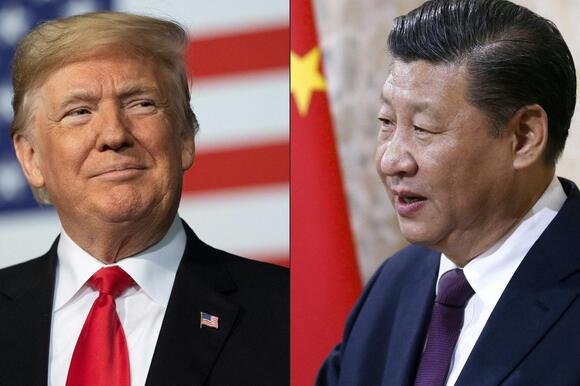A release from Chinese State Media stated that President Xi Jinping noted that dialogue and cooperation are the only correct choice for China and the United States. He continued, ‘Recalibrating the direction of the giant ship of China-U.S. relations requires the two sides to take the helm and set the right course. It is crucial to steer clear of the various disturbances and disruptions.’
Media reports in the United States indicate that Trump expressed his great respect for Xi and the importance of the U.S.-China relationship. He said, ‘The United States wants the Chinese economy to do very well, and the United States and China working together can get a lot of great things done. ’
During the call, discussions focused on bilateral relations: trade, the One China Policy, and Chinese university students’ access to US universities.

Related to resolving the tariffs dispute, the leaders committed to building on the successes of the meeting in Geneva. There was a mutual commitment to work on executing the terms as agreed. Both parties committed to having representatives meet to discuss the associated challenges as soon as possible. President Trump named Treasury Secretary Scott Bessent, Commerce Secretary Howard Lutnick, and Trade Representative Jamieson Greer to lead the US delegation to meet with their Chinese counterparts.
President Xi invited President Trump to visit the People’s Republic of China, which was accepted.
President Xi also raised the One China policy, encouraging the U.S. to ‘handle the Taiwan question with prudence, so that the fringe separatists bent on “Taiwan independence” will not be able to drag China and the United States into the dangerous terrain of confrontation and even conflict.’ President Trump confirmed in media engagements after the call that he advised President Xi that the United States will honour the One-China policy.
The meeting of the two leaders has received favourable feedback. Victor Gao Zhikai, vice president of the Centre for China and Globalization, was hopeful that the presidential-level dialogue had set the course for improvement in China-U.S. relations before the end of the 90 days. Exploring both sides, he stated, ‘From the Chinese side, I think there is only one set of China-U.S. relations. All the pieces are interrelated. You cannot manhandle China on several issues and then try to get China’s help on the other issues. From Washington’s perspective, they seem to pretend that China-U.S. relations are highly compartmentalized. They can do things in one compartment like what you want, and you want to achieve opposite results in several other compartments.’
Zhikai also reminded of the significance of a positive outcome, given that China and the United States are the world’s two most significant and influential economies. He stated, ‘Whatever actions they take regarding each other have a direct impact not only on the Chinese and American people, but also on the rest of the world. Today, the world needs stability, reliability, predictability, and certainty, particularly between China and the United States.’

Antigua and Barbuda’s Minister of Foreign Affairs & Trade, Hon E.P. Chet Greene, indicated that news of the dialogue between both leaders was welcomed. He stated, ‘A prolonged trade war threatens sustainable cost of living for Antigua and Barbuda and the region.’ He indicated that while the Government of Antigua and Barbuda is actively exploring options to manage the rising prices and secure alternative trade routes and trading partners, ‘our proximity to the United States and its current position as our most significant trading partner means improve trade relations between the US and China will bring positive benefits for the cost of goods and positively impact the lives of our people’. Presently, goods from the USA comprise more than 80 percent of Antigua and Barbuda’s total imports.

